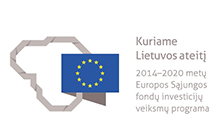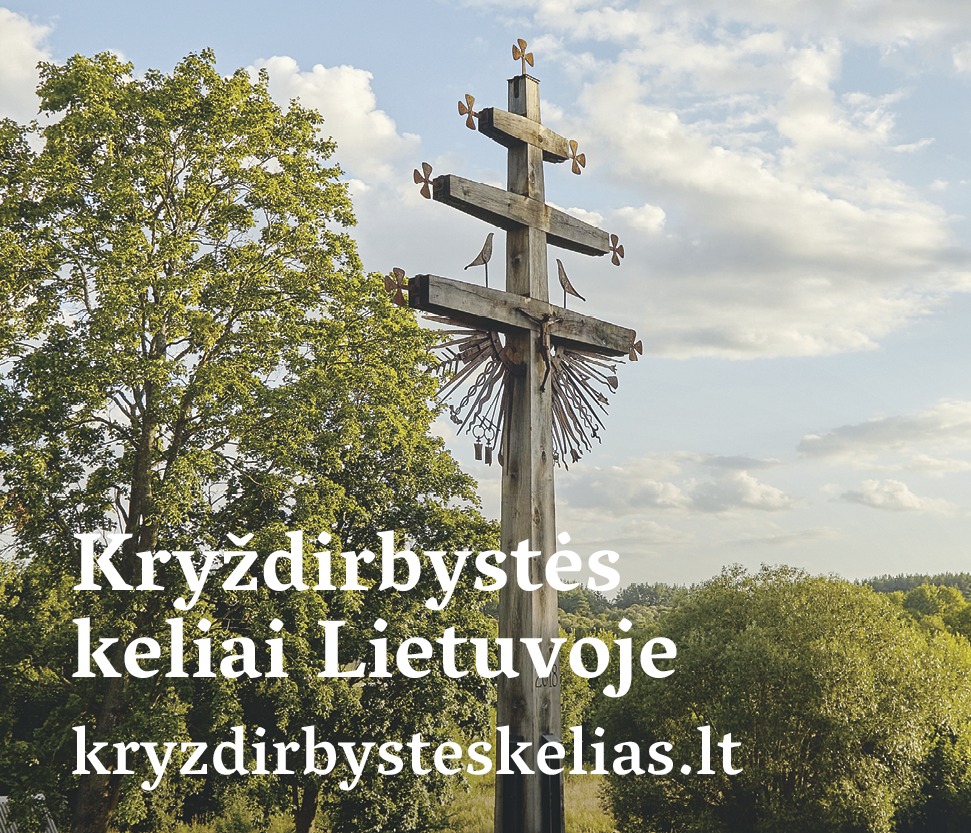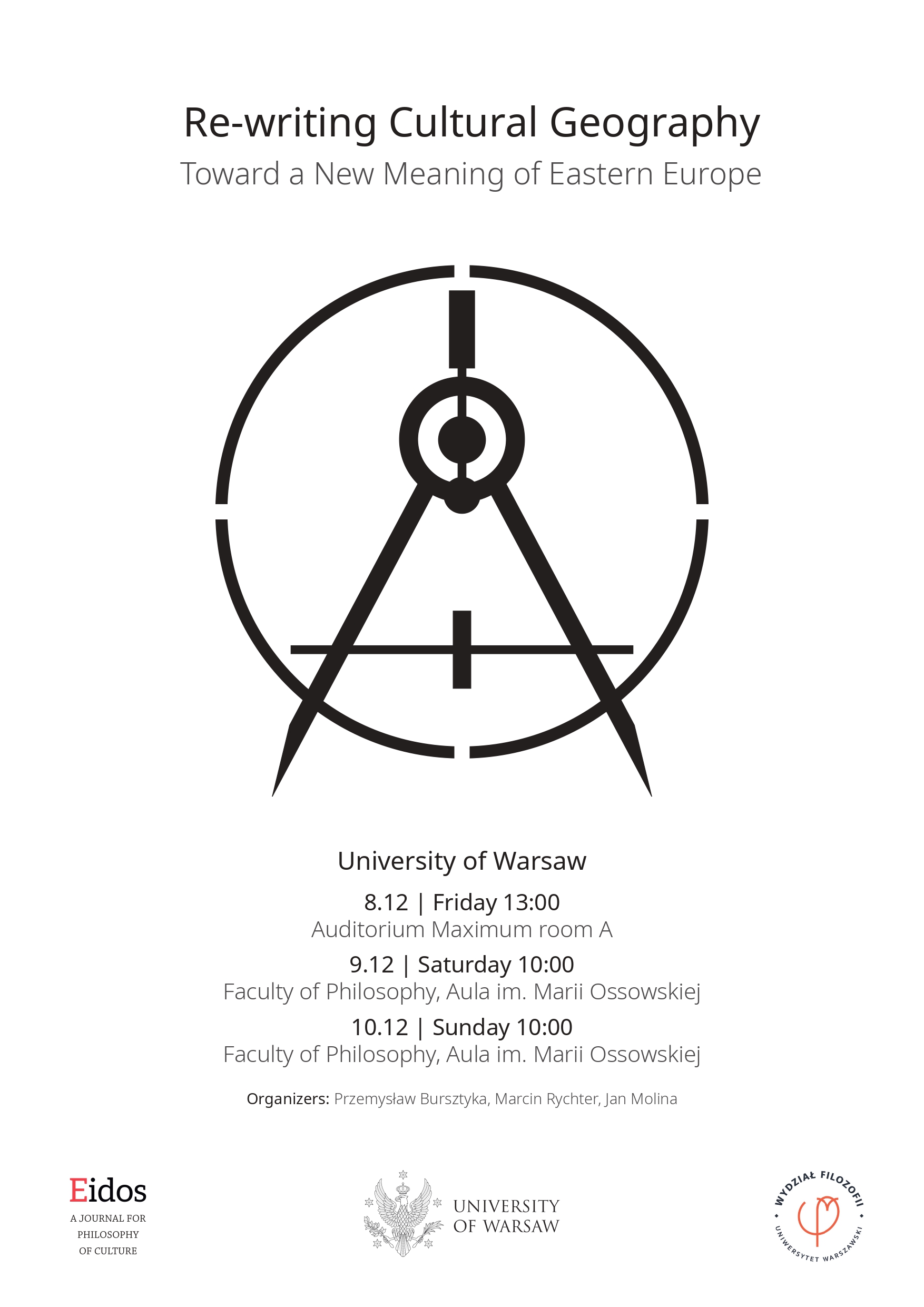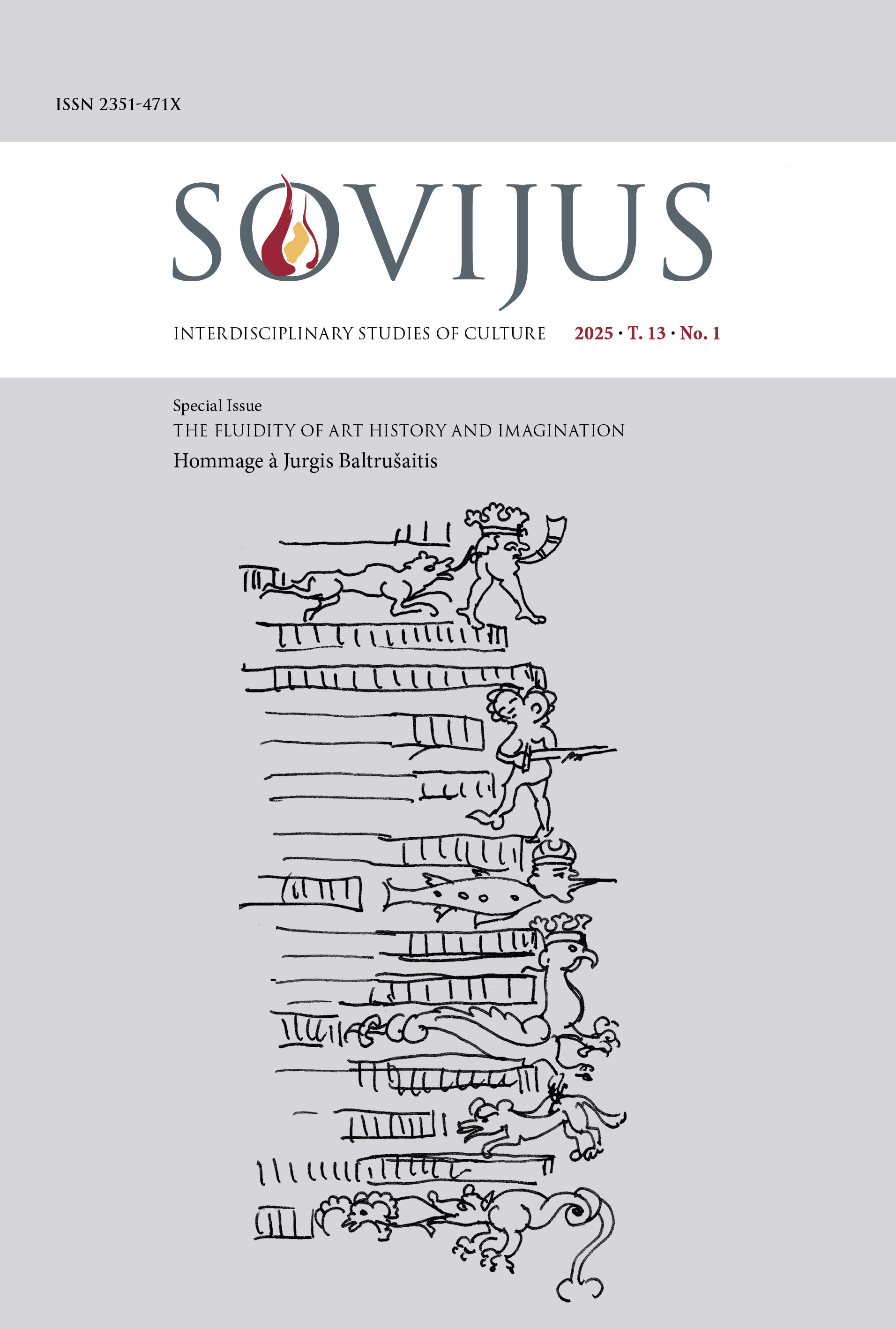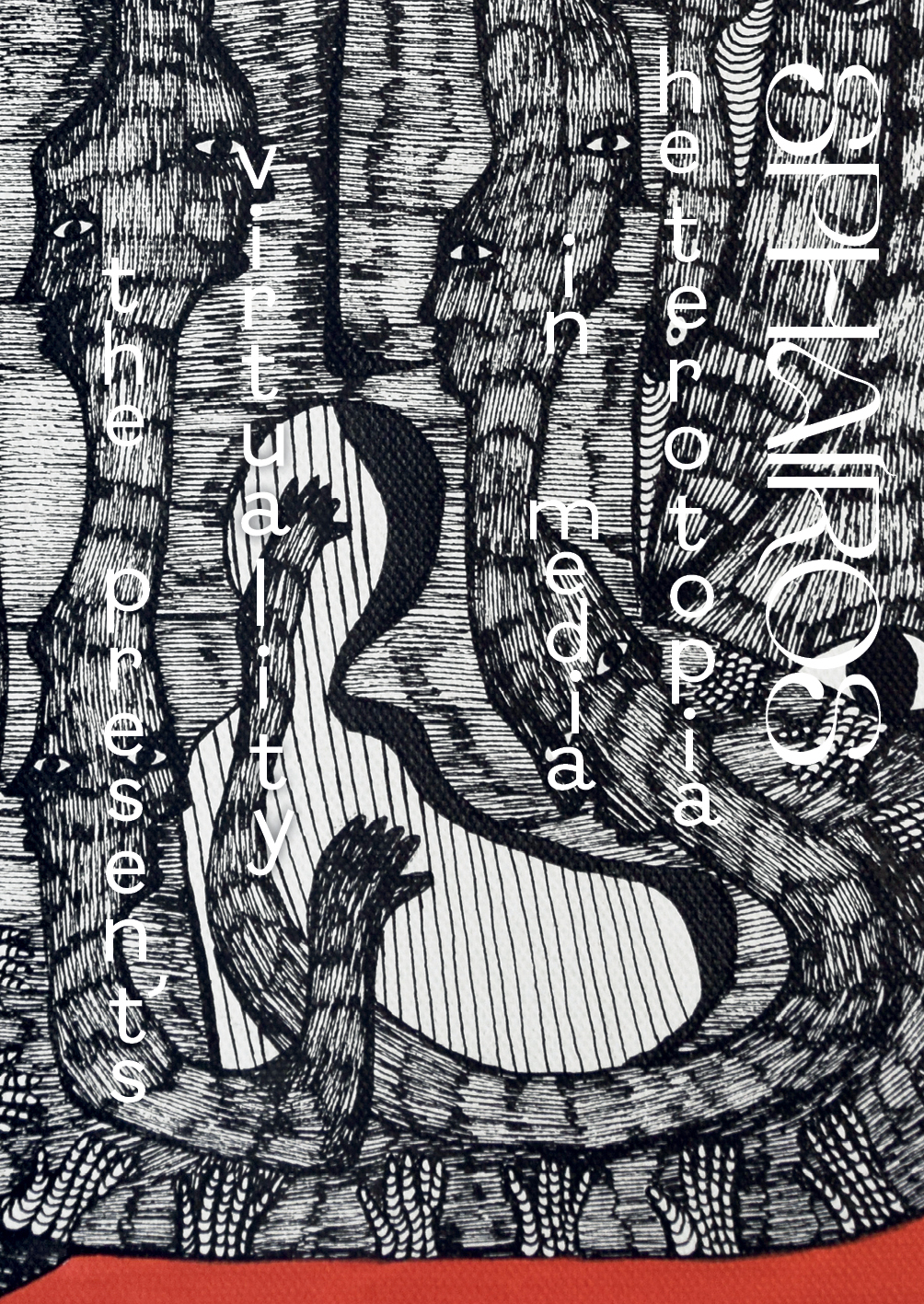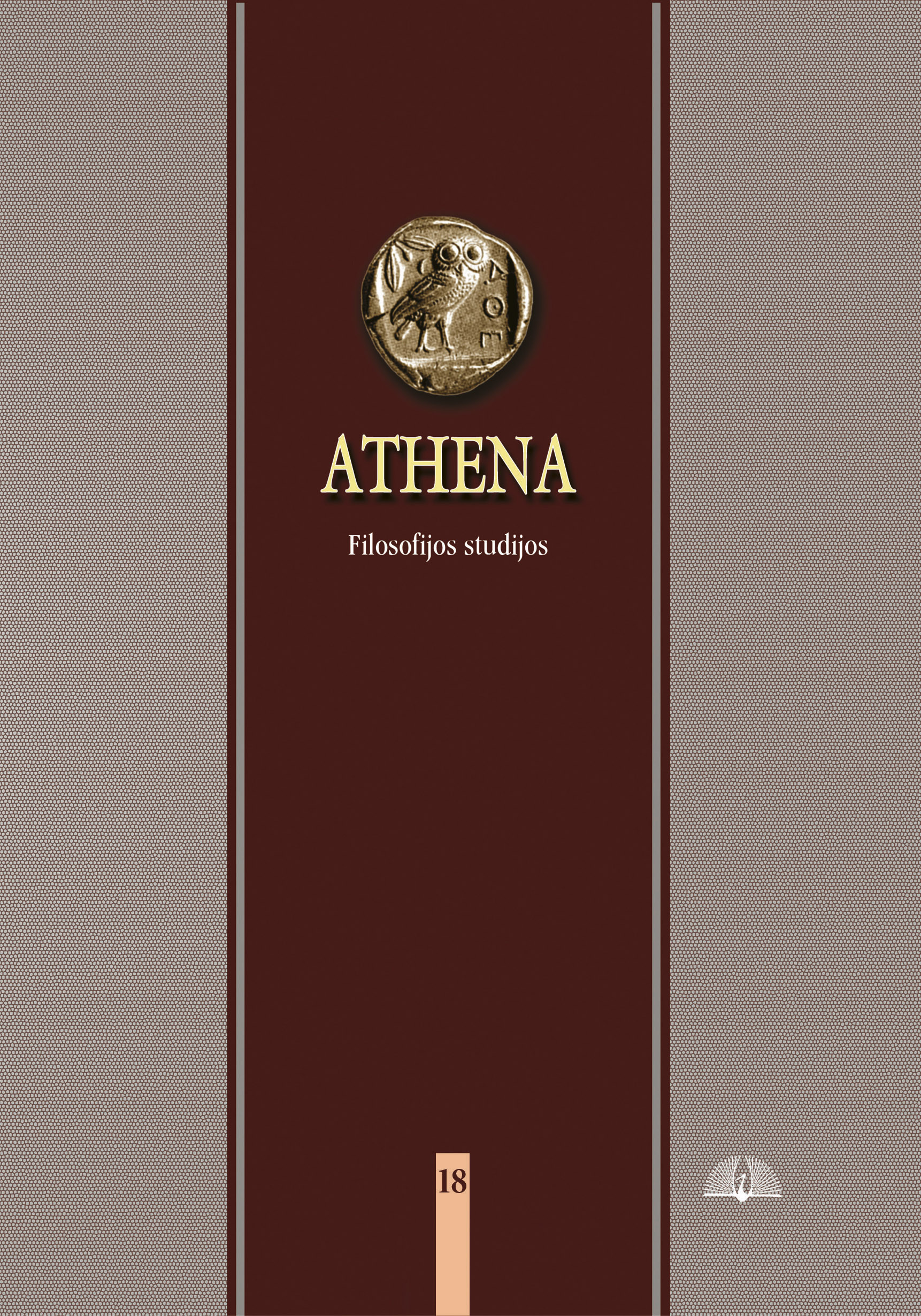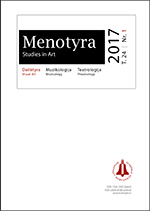- Home
- Structure and Contacts
- Contacts
- Naglis Kardelis
Naglis KARDELIS
 PhD (Humanities, Philosophy, 01H), Chief Researcher, Chairman of the Research Council at the Lithuanian Culture Research Institute in Vilnius, Lithuania, and Professor at the Faculty of Philosophy, Vilnius University.
PhD (Humanities, Philosophy, 01H), Chief Researcher, Chairman of the Research Council at the Lithuanian Culture Research Institute in Vilnius, Lithuania, and Professor at the Faculty of Philosophy, Vilnius University.
ORCID: https://orcid.org/0000-0002-2179-3754
All publications
Naglis Kardelis is the author of two books – Vienovės įžvalga Platono filosofijoje (The Insight of Unity in Plato’s Philosophy, 2007, a scholarly monograph published as an extended version of the PhD thesis of the same title defended in 2003 at the Philosophy Faculty of Vilnius University; in Lithuanian) and Pažinti ar suprasti? Humanistikos ir gamtotyros akiračiai (To Know or to Understand? The Horizons of Humanities and Natural Sciences, 2008, a collection of scholarly articles and essays; in Lithuanian) – as well as numerous scholarly studies and articles in the field of Classical Greek Philosophy, Classical Literature, and Contemporary Continental Philosophy. He has translated from Greek into Lithuanian four Platonic dialogues – the Timaeus, the Critias (both 1995), the Phaedrus (1996), and the Apology of Socrates (2009) – as well as, from Greek and Latin into Lithuanian, a number of texts from the corpus of Christian classics. He has delivered scholarly presentations at international philosophical conferences in Honolulu, USA.
Areas of research and academic interests: Philosophy of Classical Antiquity, Contemporary Continental Philosophy, Philosophy of Religion, Philosophy of Language, Philosophy of Archaeology, Reception of the Philosophy of Classical Antiquity in Contemporary Philosophy.
E-mail: naglis.kardelis@gmail.com
SELECTED PUBLICATIONS
Books:
Kardelis, Naglis. Pažinti ar suprasti? Humanistikos ir gamtotyros akiračiai [To Know or to Understand? The Horizons of Humanities and Natural Sciences]: A Collection of Scholarly Articles and Essays, Vilnius: Naujasis židinys, 2008, 239 p., ISBN 9786099505916.
Kardelis, Naglis. Vienovės įžvalga Platono filosofijoje [The Insight of Unity in Plato’s Philosophy]: A Scholarly Monograph, Vilnius: Versus aureus, 2007, 304 p., ISBN 9789955340584.
Scholarly articles:
Kardelis, Naglis. Beginnings of Philosophy in the World-Outlook of the Old Europeans: Reflecting on the Archaeomythological Reconstructions of Marija Gimbutas, Sphairos: Cultural and Media Studies, 13 (Marija Gimbutas in 21st Century: Longing for Peaceful Civilisations), edited by Rita Repšienė, Vilnius: Lithuanian Culture Research Institute, 2022, p. 104–136, ISSN 2029-8560, eISSN 2783-5529
Kardelis, Naglis. Kolorito, kompozicijos ir vaizduojamojo turinio jungtys Čiurlionio tapyboje: filosofinis žvilgsnis [The Links Between Colour, Composition, and Representational Content in Čiurlionis’ Painting: A Philosophical View], Sonatiniai M. K. Čiurlionio garsovaizdžiai, edited by L. Ivanova, Ž. Svigaris, Vilnius: LKTI, 2022, p. 292–305.
Kardelis, Naglis. Kada iš tiesų prasidės antropocenas? Apie dar vieną galimą antropoceno termino reikšmę [When will the Anthropocene Really Begin? On a Yet Another Possible New Meaning of the Term “Anthropocene”], Athena: filosofijos studijos 14, edited by A. Žukauskaitė, Vilnius: Lietuvos kultūros tyrimų institutas, 2019, p. 11–26, ISSN 1822–5047, e-ISSN 2538–7294. https://www.athena.lt/files/pdf/14/Athene_C_194.pdf
Kardelis, Naglis. Arvydas Šliogeris – lietuvių Heideggeris: šių filosofų mąstymo paralelės [Arvydas Šliogeris as “the Lithuanian Heidegger”: The Parallels Between the Thought of These Two Philosophers], Iššūkis metafizikai: lietuviškos Heideggerio filosofijos interpretacijos, edited by A. Andrijauskas Vilnius: Lietuvos kultūros tyrimų institutas, 2019, p. 131–149, 643, ISBN 9786098231175.
Kardelis, Naglis. Sokratiškasis elenchas – Derrida dekonstrukcijos provaizdis? [The Socratic Elenchus: A Prototype of the Derridean Deconstruction?], Athena: filosofijos studijos 13, edited by D. Petrina. Vilnius: Lietuvos kultūros tyrimų institutas, 2018, p. 11–34, ISSN 1822–5047, e-ISSN 2538–7294. https://www.athena.lt/files/pdf/13/I-1.pdf
Kardelis, Naglis. Mitai kaip medijos ir medijos kaip mitai: keletas filosofinių pastabų [Myths as a Medium and the Media as Myths: A Few Philosophical Considerations], Medijų mitai ir mitai kaip medijos (Lietuvos kultūros tyrimai 10), edited by R. Repšienė, Vilnius: Lietuvos kultūros tyrimų institutas, 2018, p. 64–82, ISSN 2029–8560. http://www.lkti.lt/LKT/pdf/10/LKT-10.pdf
Kardelis, Naglis. Panoramiškumas ir panoptiškumas senovės graikų kultūroje: apie antikines panoptikumo idėjos ištakas [The “Panoramic” and “Panoptic” Character of Ancient Greek Culture: On the Origins of the Concept of Panopticon in Classical Antiquity], Athena: Filosofijos studijos 12, edited by A. Sverdiolas, Vilnius: Lietuvos kultūros tyrimų institutas, 2017, p. 50–86, ISSN 1822–5047, e-ISSN 2538–7294. https://www.athena.lt/files/pdf/12/II-1.pdf
Kardelis, Naglis. Dieviška ir žmogiška homerinių himnų išmintis [Divine and Human Wisdom of the Homeric Hymns], Homeriniai himnai, translated from Greek with commentaries and indexes by A. Kudulytė-Kairienė, a following article written by N. Kardelis, Vilnius: Aidai, 2016, p. 187–379, ISBN 9786094500312.
Kardelis, Naglis. Gyvūno sampratos formavimasis senovės graikų mąstyme [The Formation of the Concept of Animal in the Ancient Greek Thought], Athena: filosofijos studijos 11, edited by A. Žukauskaitė, Vilnius: Lietuvos kultūros tyrimų institutas, 2016, p. 11–55, ISSN 1822-5047, e-ISSN 2538–7294. https://www.athena.lt/files/pdf/11/I-1.pdf
Kardelis, Naglis. Pozityviųjų stokos aspektų įžvalgos senovės graikų filosofijoje [Insights into the Positive Aspects of Deficiency in Ancient Greek Philosophy], Stokos reiškinys: būtis, žmogus ir bendruomenė, edited by E. Leontjeva, A. Vainė, M. Vyšniauskaitė, Vilnius: Lietuvos laisvosios rinkos institutas–Lietuvos kultūros tyrimų institutas, 2016, p. 10–38, ISBN 9789955868842. https://www.llri.lt/wp-content/uploads/2016/11/STOKA__2016___LLRI.pdf
Kardelis, Naglis. Nesuvokiamoji tikrovės Motina: materijos sampratos formavimasis antikinėje filosofijoje [The Inscrutable Mother of Reality: The Formation of the Concept Matter in the Philosophy of Classical Antiquity], Athena: filosofijos studijos 10, edited by D. Bacevičiūtė, Vilnius: Lietuvos kultūros tyrimų institutas, 2015, p. 11–42, ISSN 1822–5047 , e-ISSN 2538–7294. https://www.athena.lt/files/pdf/10/I-1.pdf
Kardelis, Naglis. Senosios Europos simbolių klasifikacija ir interpretavimas Marijos Gimbutienės veikaluose „Deivės kalba“ ir „Senoji Europa“ [Classification and Interpretation of Old European Symbols in the Works of Marija Gimbutas „The Language of the Goddess“ and „The Old Europe“], Filosofija išeivijoje (Lietuvos filosofijos istorija. Paminklai ir tyrinėjimai, XI knyga), edited by R. M. Vabalaitė, Vilnius: Lietuvos kultūros tyrimų institutas, 2015, p. 173–197, 234–245. – ISSN 1822–928X, ISBN 9789955868781.
Kardelis, Naglis. Kinematografinė vaizdo ir teksto sąveikos dialektika [Cinematographic Dialectic of the Interactions Between Image and Text], Sovijus: tarpdalykiniai kultūros tyrimai 3 (1), Vilnius: Lietuvos kultūros tyrimų institutas, 2015, p. 48–66, ISSN 2351–471X. http://www.sovijus.lt/wordpress/wp-content/uploads/2015/07/47-64_N.Kardelis.pdf
Kardelis, Naglis. Judantis amžinybės atvaizdas: laikas ir jo veidai Platono filosofijoje [Moving Image of Eternity: Time and Its Faces in Plato’s Philosophy], Athena: filosofijos studijos 8, edited by D. Bacevičiūtė, Vilnius: Lietuvos kultūros tyrimų institutas, 2012, p. 11–36, ISSN 1822–5047, e-ISSN 2538–7294. https://www.athena.lt/files/pdf/8/I-1.pdf
Kardelis, Naglis. Filosofiniai religinių simbolių aspektai [Philosophical Aspects of Religious Symbols], Sakralieji baltų kultūros aspektai, edited by E. Usačiovaitė, Vilnius: Lietuvos kultūros tyrimų institutas, 2012, p. 60–71, ISBN 9789955868521.
Kardelis, Naglis. Vaizduotė ir filosofijos ištakos [Imagination and the Origins of Philosophy], Medijos, politika, vaizduotė (Lietuvos kultūros tyrimai 1), edited by R. Repšienė, Vilnius: Lietuvos kultūros tyrimų institutas, 2011, p. 124–135, ISSN 2029–8560.
Kardelis, Naglis. Poetinė Arato „Reiškinių“ visata [The Poetical Universe of Aratus „Phaenomena“], Aratas, Reiškiniai, translated from Greek with a commentary, plan, bibliography and indexes by P. Garbačiauskas, a following article written by N. Kardelis, Vilnius: Aidai, 2010, p. 165–276. – ISBN 9789955656890.
Kardelis, Naglis. Suvaržančios ir išlaisvinančios ribos: ribos ir beribiškumas senovės graikų ir šiuolaikinėje filosofijoje [Limits that Confine and Limits that Liberate: Limits and Limitlessness in Ancient Greek and Contemporary Philosophy], Athena: filosofijos studijos 1, edited by V. Gumauskaitė, A. Žukauskaitė, N. Kardelis, Ž. Jackūnas, Vilnius: Versus aureus, 2006, p. 12–27, ISSN 1822–5047, e-ISSN 2538–7294. https://www.athena.lt/files/pdf/1/I-1.pdf
Kardelis, Naglis, Tikėjimas ir mąstymo patirtis: kaip galimi Dievo buvimo įrodymai šiandien [Belief and the Experience of Thinking: How the Arguments for the Existence of God are Possible Nowadays], Tikėjimo prieigos, edited by N. Putinaitė, Vilnius: Aidai, 2003, p. 49–91, ISBN 9955445629.

Address: Saltoniškių g. 58,
LT-08105, Vilnius
Į. k. 111961791
Tel./fax. +370 5 275 1898
Email: LKTI@LKTI.LT


